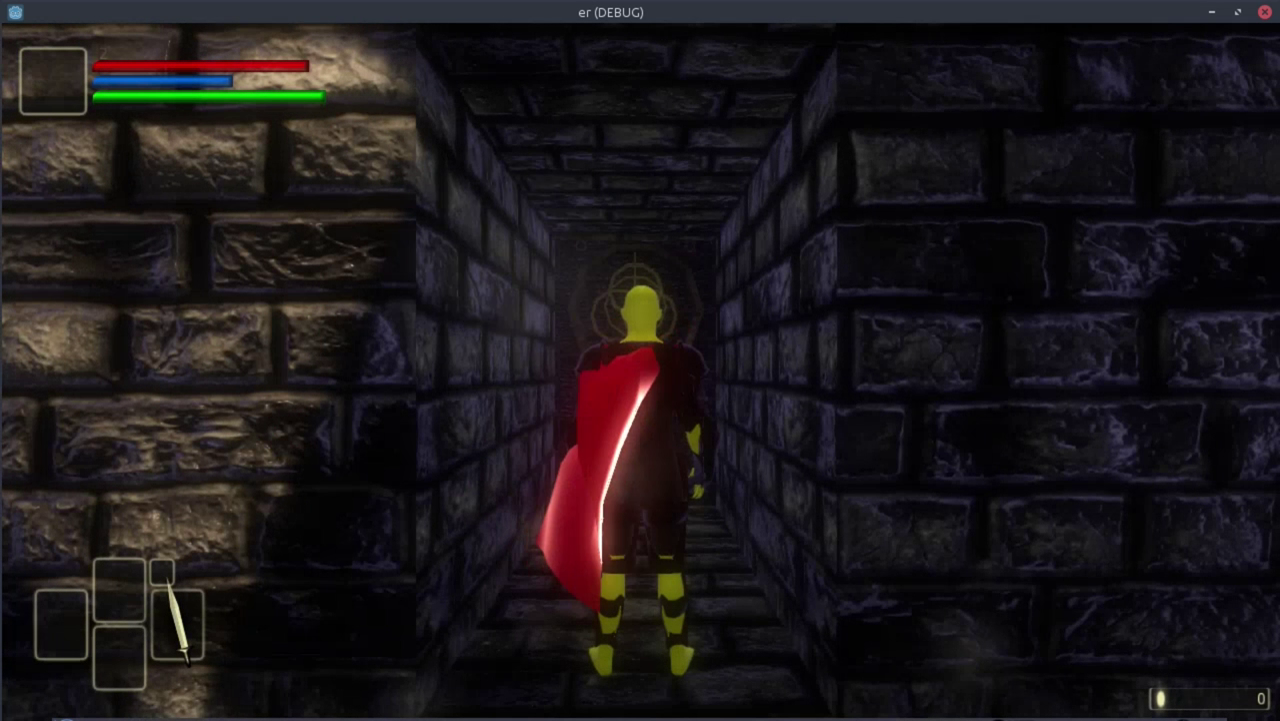Elden Ring Budget And Profit: A Deep Dive Into The Game's Financial Success
Hey gamers and business enthusiasts, if you're wondering how Elden Ring has been smashing records both in the gaming world and the financial realm, you're in the right place. Elden Ring, a masterpiece crafted by FromSoftware and directed by Hidetaka Miyazaki, has not only captured the hearts of millions but also raked in serious cash. In this article, we'll unravel the budget and profit story behind this epic game that's taken the industry by storm.
This game isn't just about defeating bosses and exploring a dark fantasy world. It's also a financial juggernaut that's teaching the gaming industry a thing or two about budgeting, marketing, and profit margins. Elden Ring has set a new benchmark for how much money a single game can generate, and we're here to break it all down for you.
So, whether you're a gamer curious about the business side of your favorite game or a businessperson fascinated by the gaming industry, this article is packed with insights you won't want to miss. Let's dive in and explore the financial landscape of Elden Ring together.
Read also:Pop Melodie R34 The Ultimate Guide To Nissans Iconic Tune Machine
Understanding Elden Ring's Budget
Initial Investment and Development Costs
Developing a game like Elden Ring doesn't come cheap. The initial investment was substantial, with reports suggesting that the development budget hovered around $50 million. This figure includes everything from salaries for the development team to the costs of creating the game's expansive world and intricate mechanics.
But let's not forget the collaboration with George R.R. Martin. His involvement in crafting the game's lore added another layer of complexity and cost to the project. The budget also accounted for the extensive testing and quality assurance needed to ensure the game met the high standards set by FromSoftware.
Marketing Expenditures
The marketing strategy for Elden Ring was nothing short of brilliant. The team at FromSoftware, along with their publishing partner Bandai Namco, invested heavily in promotional campaigns. These included trailers, demos, and partnerships with influencers and gaming communities. The marketing budget is estimated to be around $20 million, a significant portion of the overall budget.
This investment paid off, as the hype surrounding Elden Ring's release was palpable. The game's launch was one of the most anticipated events in the gaming calendar, and the marketing efforts played a crucial role in building that anticipation.
Profit Analysis of Elden Ring
Sales Figures and Revenue Streams
Elden Ring has been a financial powerhouse since its launch. Within the first two weeks, the game sold over 12 million copies worldwide. At an average price of $60 per copy, this translates to a staggering $720 million in revenue. And that's just from initial sales.
Additionally, Elden Ring benefits from various revenue streams, including DLCs, merchandise, and licensing deals. These supplementary income sources contribute significantly to the game's overall profitability.
Read also:Gillian Gruffudd The Rising Star In The Entertainment Industry
Return on Investment
When you consider the total budget of around $70 million, the return on investment (ROI) for Elden Ring is impressive. The game has already surpassed its budget multiple times over, making it one of the most profitable titles in recent years.
This success can be attributed to the game's high quality, strong brand recognition, and effective marketing strategies. Elden Ring serves as a testament to the potential financial rewards of investing in high-quality gaming experiences.
Impact on the Gaming Industry
Setting New Standards
Elden Ring's financial success has set new standards in the gaming industry. It demonstrates that investing in quality game development can lead to significant returns. This has encouraged other developers and publishers to focus more on creating immersive and high-quality games.
The game's success also highlights the importance of strong marketing strategies. The way Elden Ring was marketed has become a case study for other companies looking to replicate its success.
Influence on Future Game Development
The impact of Elden Ring extends beyond its financial achievements. It has influenced the way games are developed and marketed. Developers are now more inclined to explore complex narratives and expansive worlds, knowing that there is a market for such games.
Publishers are also taking note of Elden Ring's success and are more willing to invest in similar projects. This could lead to more high-quality games hitting the market in the coming years.
Challenges and Risks
Development Challenges
Despite its success, the development of Elden Ring was not without its challenges. The team faced numerous obstacles, from technical difficulties to creative differences. The collaboration with George R.R. Martin also posed its own set of challenges, as integrating his vision with Miyazaki's gameplay mechanics required careful balancing.
However, the team at FromSoftware rose to the occasion, overcoming these challenges to deliver a game that has been widely praised by critics and players alike.
Risks Involved
Investing in a game like Elden Ring comes with inherent risks. The high development and marketing costs mean that the game needs to sell well to recoup its investment. There's always the possibility that a game might not resonate with players, leading to financial losses.
Thankfully, Elden Ring's success has mitigated these risks, proving that the investment was well worth it. It serves as a reminder of the importance of thorough planning and execution in the gaming industry.
Comparative Analysis
Against Other AAA Titles
When compared to other AAA titles, Elden Ring stands out not just for its gameplay but also for its financial performance. Games like Cyberpunk 2077 and Red Dead Redemption 2 have also achieved significant financial success, but Elden Ring's rapid return on investment sets it apart.
This comparative analysis shows that Elden Ring's business model is one that other developers can learn from. Its focus on quality and effective marketing has paid dividends, making it a benchmark for future AAA titles.
Market Trends
The success of Elden Ring aligns with current market trends in the gaming industry. Players are increasingly seeking out games that offer deep, immersive experiences, and Elden Ring delivers on that front. This trend is likely to continue, with more developers focusing on creating games that cater to this demand.
Moreover, the shift towards digital distribution has also played a role in Elden Ring's success. With more players purchasing games digitally, the costs associated with physical distribution are reduced, further boosting profit margins.
Player Reception and Community Engagement
Positive Reviews and Criticism
Player reception for Elden Ring has been overwhelmingly positive. Critics have praised the game for its challenging gameplay, intricate world design, and engaging story. However, like any game, it has faced some criticism, mainly regarding its steep learning curve and difficulty level.
Despite this, the game's community has embraced these challenges, often referring to them as part of the Elden Ring experience. This has fostered a strong sense of community among players, who share tips and strategies to help each other progress.
Engagement Strategies
FromSoftware and Bandai Namco have employed various strategies to engage with the Elden Ring community. This includes regular updates, patches, and community events. These efforts have helped maintain player interest and ensure that the game remains relevant long after its initial release.
Engaging with the community in this way not only enhances player satisfaction but also contributes to the game's ongoing financial success. A loyal and active community is essential for any game's longevity.
Future Prospects and Predictions
Upcoming Updates and Expansions
The future looks bright for Elden Ring. FromSoftware has already teased potential updates and expansions, which are sure to keep players engaged. These updates could introduce new content, mechanics, and challenges, further enhancing the game's appeal.
Investing in updates and expansions is a smart business move, as it extends the game's lifecycle and increases its profitability. Players are eager to see what the developers have in store, and the anticipation is already building.
Industry Predictions
Based on Elden Ring's success, industry analysts predict that we'll see more games following a similar business model. Developers will focus on creating high-quality games with engaging stories and expansive worlds, supported by effective marketing strategies.
The gaming industry is evolving rapidly, and Elden Ring has shown us what's possible when all the elements come together. It's an exciting time for gamers and developers alike, with endless possibilities on the horizon.
Conclusion and Call to Action
In conclusion, Elden Ring's budget and profit story is one of success and innovation. The game's financial achievements demonstrate the potential rewards of investing in high-quality gaming experiences. From its impressive sales figures to its impact on the industry, Elden Ring has set a new standard for what a game can achieve.
So, what do you think? Are you a fan of Elden Ring's business model, or do you think there's room for improvement? We'd love to hear your thoughts. Leave a comment below and share this article with your friends. Together, let's keep the conversation going about the business of gaming.
Table of Contents
- Understanding Elden Ring's Budget
- Profit Analysis of Elden Ring
- Impact on the Gaming Industry
- Challenges and Risks
- Comparative Analysis
- Player Reception and Community Engagement
- Future Prospects and Predictions



